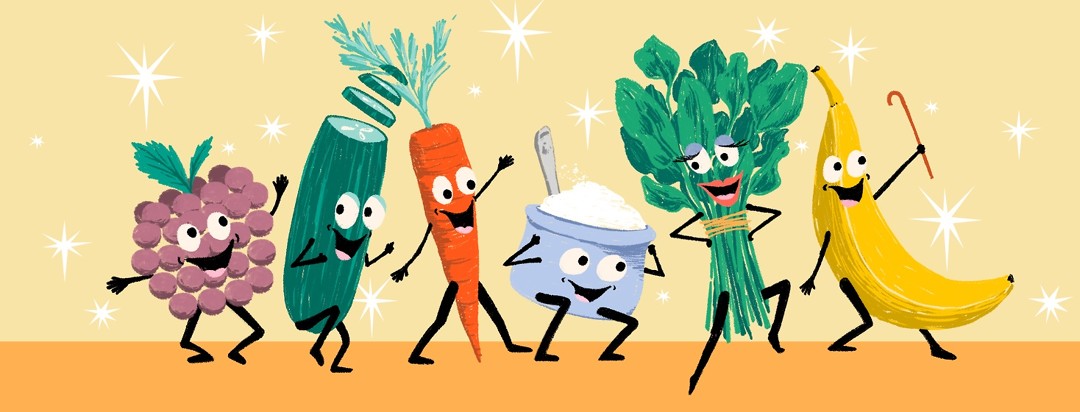FODMAP Spotlight: Fructose
Often referred to as “the fruit sugar,” fructose is a natural sugar also found in vegetables, sweeteners, and processed food products. Structurally, fructose is a monosaccharide, meaning that it is made up of just one small unit of sugar.
For those with IBS, it is often recommended to undergo an elimination diet called the low FODMAP diet,1 in which small chains of fermentable carbohydrates get removed from the diet for a short period of time. This is done to improve symptoms prior to reintroducing foods to identify individual triggers. Fructose falls into the “M” or monosaccharide category in the FODMAP acronym. Today I want to break down how this plays out in the gut of those with IBS and what we can do to avoid it!
Fructose malabsorption with IBS
In typical digestion, fructose gets well absorbed in the small intestine, making its way through the body where it then gets used as fuel. However, in some individuals with IBS, fructose is only partially absorbed, leaving some lingering in the gut. This is appropriately referred to as fructose malabsorption. When extra fructose remains in the gut, a couple of things can happen:
- Fermentation of fructose - When fructose is poorly absorbed, our colonic bacteria can ferment what remains. With fermentation, there is always a byproduct. In this case, that byproduct is gas. This can lead to increased bloating, distention, gassiness, and abdominal pain.
- Osmotic pull of fructose - Fructose also acts as “water puller” in the gut, meaning it attracts water from other areas of the body through the process of osmosis. This pulls more water into the bowel, often leading to loose watery stools, diarrhea, and urgency.
Where do we find fructose?
If you are in the elimination stage of the low FODMAP diet or if you know fructose is a trigger for you long-term, you will want to avoid foods high in fructose. As mentioned above, fructose is primarily found in fruit, but also in vegetables and some sweeteners.
Some foods that are particularly high in fructose include:
- Sweeteners such as honey, agave, high fructose corn syrup (*or glucose-fructose), and molasses
- Fruit such as apples, pears, cherries, watermelon, figs, dates, and mangoes
- Vegetables such as asparagus, sugar snap peas, broccoli, and artichoke
- Beverages such as rum, tropical juices, apple juice, and regular soda
Glucose to fructose ratio
It’s important to note that there are more foods that contain fructose, but not all foods with fructose are an issue for those with IBS. More specifically, foods that contain equal or more units of glucose to fructose are considered to be fairly well tolerated.
Glucose is also a naturally occurring sugar found in our food. Glucose actually helps the body to absorb fructose when found in the same food as long as the glucose content is equal or greater. In the intestine, glucose acts as a co-transporter that pulls fructose through the membranes of the gut, meaning better absorption!
Some examples of foods that contain equal or more glucose than fructose include raspberries, bananas (not brown), carrots, spinach, cucumber, and even table sugar. These are generally well-tolerated in moderate amounts for those that experience fructose malabsorption!
That being said, there is no evidence to suggest that adding more glucose will allow us to tolerate high fructose foods. For example, we can’t justify eating a spoonful of table sugar so that we can also eat a spoonful of honey. In fact, adding more sugar overall can have other negative effects on our health, so it’s better not to fight fire with fire on this one!
Conclusion
To summarize, fructose is one of our FODMAP categories that commonly worsen IBS symptoms. It is important to avoid high fructose foods during the low FODMAP elimination phase.2 But keep in mind, not everyone will have issues with fructose. Therefore it is important to reintroduce FODMAPs to determine your tolerance. Working with a dietitian during both elimination and reintroduction is highly recommended!
Community Poll
Does your IBS prevent you from attending public events?

Join the conversation